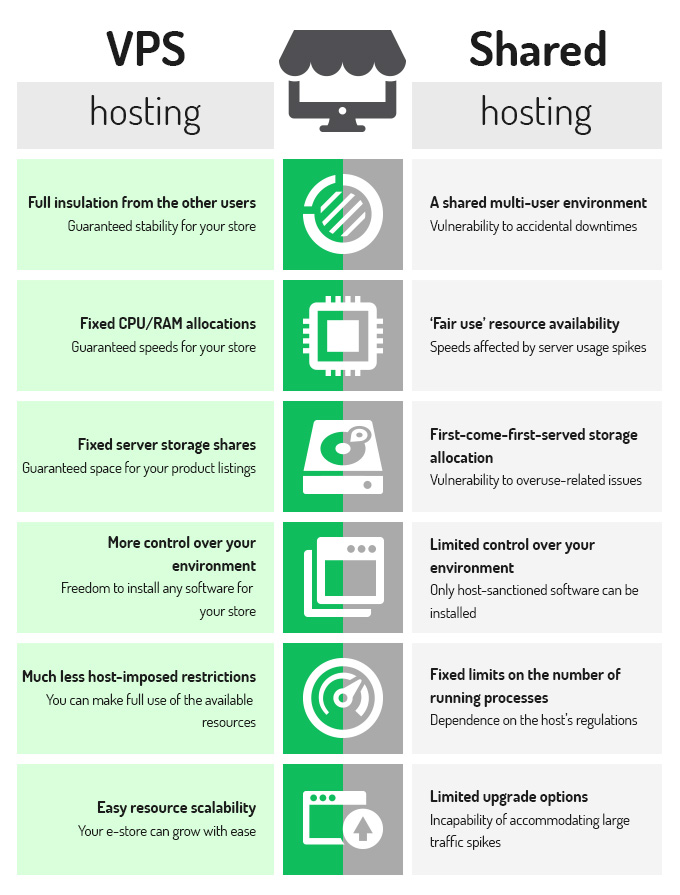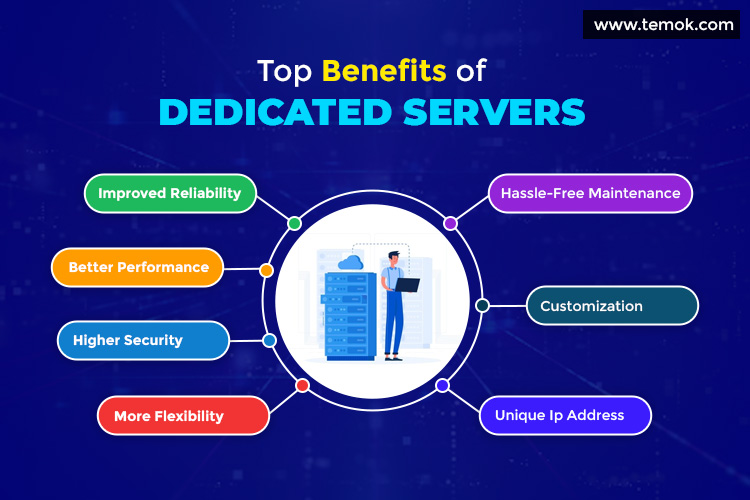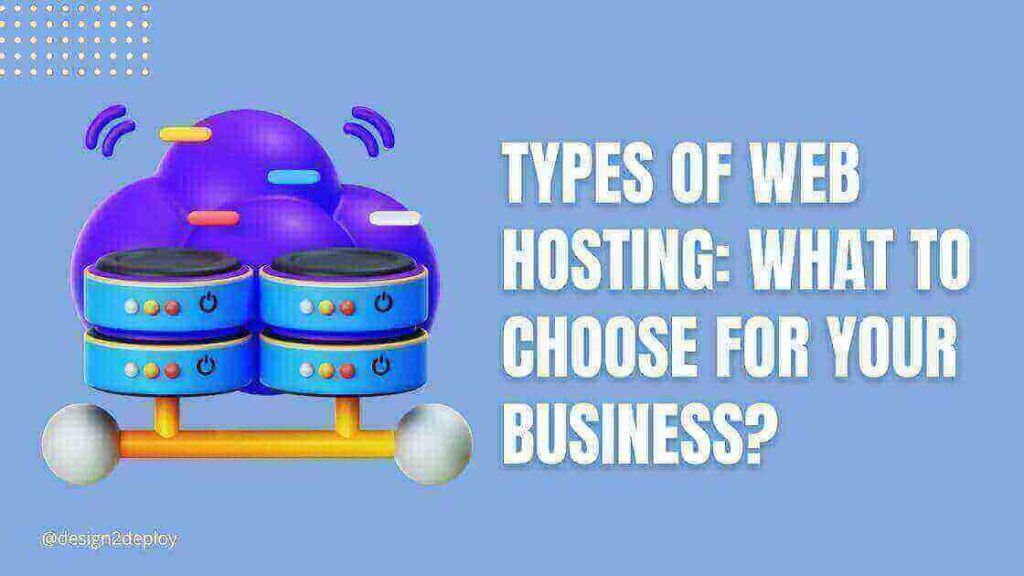There are different types of web hosting. It is easy to get confused with the hosting plans. Deciding what to choose for your business, blog, or online store can be a tedious task.
Understanding the different types of web hosting and choosing the right one for your business is essential. Your website’s speed, performance, and security are decided by the type of web hosting and the provider you choose.
To make this task easier for you, here we have listed down all the different types of web hosting, their pros, and cons, and which one will be the best for your business.
Table of Contents
Shared Hosting
In shared hosting, multiple sites are hosted on a single server. And the resources of that server are shared among the websites that are hosted on it.
This type of hosting is most suitable for websites with Low-traffic and websites that are starting out.
Pros
Pricing – The biggest advantage of shared hosting is its price. Shared hosting costs you under $50 for an entire year.
Beginner Friendly – The user interface and settings are beginner friendly. With shared hosting, there are very limited options. This makes it easier for anyone to use the interface and change the settings without messing up things,
Cons
Performance Issues – Your website can have performance issues. Since several websites are hosted on the same server. If any other website that is sharing your server, receives more traffic and is consuming too many resources, this will have a significant impact on your website as well.
Security – Websites hosted in shared hosting are at risk of getting hacked or having security issues. If any other website gets hacked and affects the server then the chances of your website getting hacked are quite high.
Limited Resouces – Limited access to resources. Certain themes, plugins, or software might require additional memory resources, it is not possible to use this kind of software on your website
Who is it for?
If you are either starting out, experimenting with your blogging career, hosting a low-traffic website like a portfolio and are tight on budget then it is the best affordable and suitable option.
If you have a resource-intensive website, then the load time and performance will be comparatively low.
Best Shared Hosting Providers
Greengeeks, Hostgator
Cloud Hosting
Instead of hosting all your website data on a single server along with other servers, cloud hosting will host your data on multiple servers.

Pros
Page Performance – Since your website is hosted on multiple servers, even if any of the servers get damaged, crash, or have a lot of traffic, then the data will be fetched from any other nearby servers.
Traffic – Cloud hosting can handle a lot of traffic.
Load Speed – With cloud hosting you get better performance, speed, and uptime compared to shared hosting.
Easily Scalable – It is a robust and scaleable hosting model. If your website gets too much seasonal traffic you can easily increase the limit of your resources without having to switch the hosting plan. Upgrading and downgrading your hosting plans and resources become much easier.
Security –Your website will get automatic periodic backups. Cloud hosting providers in general offer amazing security features and even dedicated IP based on the type of cloud hosting you choose
Cons
Cloud Hosting has very limited cons.
Pricing – Cloud hosting is a bit expensive compared to shared hosting but offers many features.
Who is it for?
If your website gets a medium amount of traffic, then cloud hosting is your go-to choice.
Best Cloud Hosting Provider
Hostinger, Namecheap
VPS
In a VPS hosting, you will get a dedicated private virtual server. How does it differ from typical shared hosting?
In shared hosting, all the resources are shared, if anybody consumes a lot then you will be left with what is remaining. This can affect your site. But in the case of virtual hosting, your website will get dedicated resources within the server.
Pros
Resources – Allocation of dedicated resources for your website.
Trafic – VPS can handle a large amount of traffic and also sudden spikes in traffic.
Scalability – Resources are easily scalable.
Performance – Greater site performance and loading speed due to dedicated resource allocation. Your website’s performance will not be affected by other websites hosted on the server.

Cons
Expensive – It is more expensive than Cloud Hosting.
Need Technical Knowledge – You should have some amount of technical knowledge to set up and handle VPS hosting.
Who is it for?
If your website gets huge traffic and consumes heavy resources, then VPS is an excellent option. For e-commerce websites, and blogs with great traffic VPS works the best.
Also, It is a great and affordable alternative to dedicated hosting.
Best VPS Hosting Provider
Hostinger, Liquid Web
Dedicated Hosting
In a dedicated hosting environment, you will get an entire server dedicated just to your website.
Pros
Secure – Extremely secure compared to other hosting plans. Since the server is not shared at all, there is no possibility of security attacks on server side.
Technical Expertise – You definitely should have solid server and hosting knowledge, and prior experience to manage dedicated hosting plans.
Robust – A highly reliable, robust hosting system with advanced functionalities and flexibility.

Cons
Expensive – It is the most expensive hosting option out of all other types of hosting.
Who is it for?
This type of hosting is particularly suitable for websites with extremely large traffic and sites that don’t want to share their resources.
you have full control over your configuration settings
Best Dedicated Hosting Providers
Liquid web, Namehero
Managed cloud hosting
An administrator will help you do all the tasks. Features offered in managed hosting differ from provider to provider.
Pros
No Technical Expertise needed – You need not hire a developer to work things out every time you change your business plan, or increase or decrease your resource.
Dedicated Tech Support – You will be provided with a network manager who will take care of your hosting and everything else your website might need on your behalf.
Cons
Pricing – You might want to pay a little extra for the dedicated support system you get.
Who is it for?
If you have no idea about hosting, how to host your website, and other technical knowledge required to successfully run your business. managed hosting will work best for you.
Best Managed Cloud Hosting Providers
Liquid web, Digital ocean
Final Words
We hope this article gave you some clear and detailed insights on different types of web hosting. What works best for your website and business depends largely on your site’s traffic, usage, and other factors.



